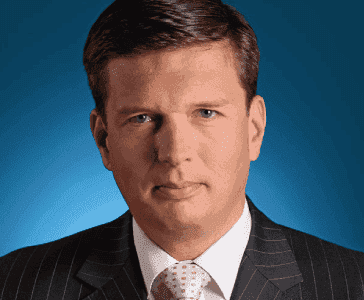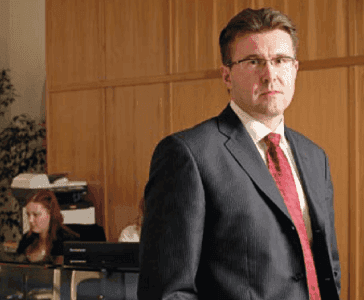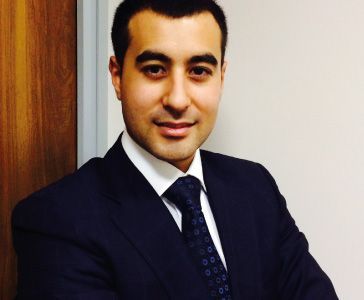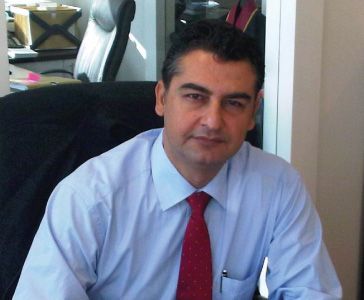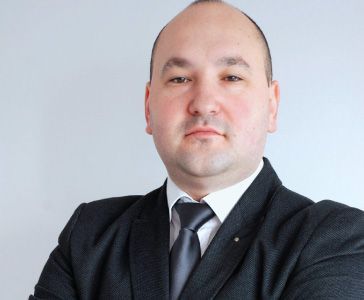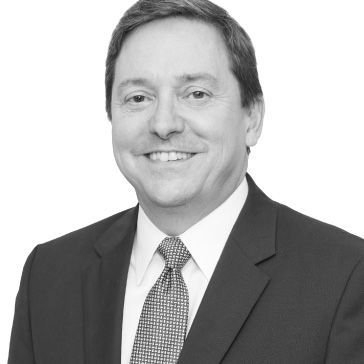Interview with Murat Vanlioglu, Head of Legal for Shell Companies in Turkey.
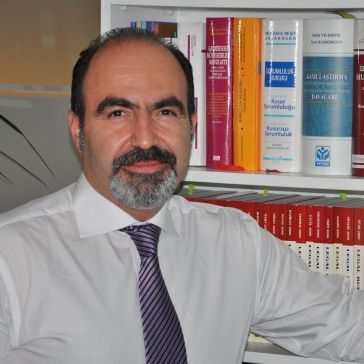
Murat Vanlioglu
CEELM: How did you get to Shell? How did your career end up with you here?
MV: A head-hunter found me. It was just a coincidence. They were looking for a legal manager for Shell, and they found someone who “gave up” a couple of days later after she began to work, and so they urgently needed to find a counsel. They found me through a colleague that was working in their office who knew me from my previous career with Sabanci Holding. She called Sabanci and said “where’s Murat?”, and they were directed to my new office, stating that “I found you from this this this this,” and asked if I was interested in a new job opportunity. I said no, because at that time I was working for Toyota, and would be having an expat job in Brussels at Toyota’s center. But she said “don’t say no immediately – this is Shell.” And I said “I’ll consider it.” (laughing)
CEELM: Did they bring you on as Head of Legal?
MV: Yes. I was recruited as Head of Legal in 2006 and worked as a Head of Legal at Toyota as well.
CEELM: Ok. And you were at Ernst & Young before that, right?
MV: Yes; I was in charge of Mergers & Acquisitions in particular cross-border deals as well as some privatization projects of state owned banks.
CEELM: You were at several banks in the beginning as well, right?
MV: Yes, I started my career with banks as an Execution and Bankruptcy attorney, collecting credit card debts. It was a challenging way to learn how a contract can be executed in real life. That period of my career taught me that without properly understanding the execution process of contracts, a lawyer should not draft it. So I worked hard and spent long working hours during the first 3 or 4 years of my career in banks. Indeed, I started from scratch, and began my career by bringing files from the archives of the court execution office.
CEELM: Really?
MV: Yeah. In Pamuk Bank I first started to chase after credit card debts, then afterwards I went on dealing with commercial credits, bigger loans that were requiring liquidation of mortgages, and more complicated things. Then I said “this is enough – no more debt collection.” At that time there was a newspaper advertisement, and I applied. It was Toyota, and they hired me. I was the only one that never had any sponsor behind me. Out of the hundreds of applicants, they all had some connection with someone else, and I was the only one who has no connection with anyone.
CEELM: You didn’t have a particular interest in the Oil & Gas industry starting out?
MV: Starting out, no.
CEELM: Ok. Are there special challenges to that industry now?
MV: Yes. Different. Actually, before I was recruited, in the interview, the CEO of the company said, “it is too challenging.” And I said, “no, it’s not too challenging. It’s a piece of cake. I am a lawyer, I can do anything, anywhere, and the legislation is almost the same, except some specific industry related issues.” And I was right. The primary laws are the same: corporate laws, commercial laws, and code of obligations are the same. What was different was the energy laws – and some different industrial practices. In the motor vehicle industry people hardly sue each other.
CEELM: You mean competitors?
MV: No, dealers! They have 50 or 60 dealers, those are indeed big investors, good businessmen, very reputable persons in their local areas, and they would feel ashamed to be in court. So you can sign any kind of deal – negotiated, of course, but you do everything through negotiation. I had just 10 litigation cases throughout my employment in Toyota. In the oil industry everybody sues each other. (laughing). It’s crazy. Dealers sign the contracts with a distribution company, and 5 minutes later another company offers a bit more, then the dealers break the contract they had just signed with you 5 minutes ago. Then we have to go to court. There are hundreds of cases like that. This is the world, completely different.
CEELM: Okay. How would you describe your job, what you do? I know that’s a general question, but what’s your job?
MV: Actually I am the country legal head. I do everything. From corporate, I’m the corporate secretary of the joint venture – I’m in charge of keeping everything in compliance with the law and regulations, and everything in accordance with the principles.
CEELM: The “joint ventures” are Shell and Turcas?
MV: Shell and Turcas. Turcas is the minority shareholder/local partner. This is the downstream joint venture. There are also other joint ventures. This is the reason why I tend to describe myself as a joint ventures expert. I’ve been working with joint ventures starting with Toyota for almost 17, 18 years. In a joint venture all corporate issues, decisions, you name it, need to be governed in line with the joint venture agreement’s principles. Neither the shareholders nor the expat officers know the details of it. The partners signed the contract with their lawyers, then they put it on the shelf. Therefore, when holding Board Meetings, or getting investment resolutions, I have to ensure full compliance with the joint venture agreement. For example, investments exceeding a certain limit need to be approved by the Board. So if you miss that kind of thing it may create a conflict between the shareholders, which you never want. These kinds of things are important.
CEELM: You must have the joint venture memorized by now.
MV: Not memorized, but it is a really good agreement, so you need to be careful about it. Other than this, I founded various joint ventures with different companies, for example for upstream organization, Shell established three joint ventures with a national oil company in Ankara, for an onshore unconventional project and two conventional deep water projects. It is important to know how to negotiate a JV agreement, where to look in the joint venture agreements. If you know the priorities and which provisions you need it is easier to conclude the agreement. Each party has different priorities, discussing them openly and finding mutual solutions to both parties’ needs indeed brings pretty quick deal closings. So I created that kind of value, in terms of negotiations with counter-parties.
CEELM: I see. You also oversee the litigation process, right?
MV: Sure. I am the head of the litigation process; I draw up the strategy and give priorities to my colleagues who are going to follow the case. After we agree on the framework, my colleagues follow up the case by themselves. There is full delegation and my colleagues get the full pride of the job they are doing. Sometimes, based on the peculiarity of the case, we hire external counsel to follow the case, but it is generally done in-house. Strategy is indeed important and sometimes you even need to challenge the expert barrister following the case.
Just an example. There was a decision from the Court of Istanbul about an inconvenient forum. The court decided that it was not authorized to hear the case. And then decided to send the docket to Bakirköy courts, which is about a kilometer away. The barrister at that time proposed not to appeal. He said, “it is just a matter of two kilometers away.” I said, “no, you should go to the Court of Appeal, because the justification of the award is very risky for us, and it may lead to us losing the main case in the future. By appealing we’ll lose a year, this is for sure. But its very likely that the decision of the court of first instance will be repealed by the Court of Appeal, and then we will have a strong ground to defend against the same judge.
CEELM: This is another sort of general question: What do you like about working with Shell?
MV: Shell is, first of all, an honest company. Honest, straight-forward, respectful of people. You are supposed to comply with the law and regulations, in particular those against corruption. For instance you cannot provide gifts to an officer, and you cannot accept gifts from someone else – you need to do your job with honesty and integrity.
CEELM: That’s too bad. No gifts for you. (laughing)
MV: No, it’s really good. It’s really good indeed. Sometimes people abuse it. So if you start accepting gifts – one porcelain cup, for example, as a new year’s gift, then it starts coming with a silver mug next year (laughs). And there’s no end to it. This principle of Shell is very good. Shell values people, Shell values diversity. What is important is that Shell values intelligence and opinion. So you are always free to speak your mind. You can challenge whatever your boss says. All employees feels that everybody is equal, you are free to speak your mind, you are invited to challenge, your are free to blow the whistle, and you are provided with equal opportunities to climb the career ladder.
CEELM: And you are empowered to …
MV: … to speak your mind. Even in front of the CEO of the group.
CEELM: And that’s not just an advertising slogan? You’re being honest with me?
MV: Absolutely. All employees know that if someone or management does something wrong, or does not follow Shell business principles and ethics, they have the right to blow the whistle and contact the business integrity department, the complaint will surely be investigated and consequences applied. A whistle-blower’s identity is always kept secret so he is never exposed. This creates trust with your employer. Honesty and integrity are always valued by Shell.
CEELM: But even in terms of the working environment and culture, people are encouraged to challenge and think, and … interact.
MV: Yes, indeed people are encouraged to challenge. Also the organization is flat, rather than a vertical organization. So everyone is able to speak their minds. This is embedded in the Shell culture. This is the way I like it. I did not observe same thing with most of the companies unfortunately .
CEELM: I was going to ask. You’ve worked enough other places. Do you think that’s relatively unusual about Shell? I mean in Turkey.
MV: (nodding head): I enjoy Shell. In Turkey this is also unique. Our culture is in-between East and West. Eastern company cultures are more hierarchical, more strict than our culture. You are from the West (gestures at me), and your culture is much more similar to what I am explaining here in Shell. But some eastern companies are on the extreme. You are unable to speak your mind. It can be considered rude to speak in front of a senior person without getting permission and often only a senior guy can speak unless you are asked something. You would not feel valued under such a culture
CEELM: And that filters down even to the Turkish offices?
MV: Everything, everything.
CEELM: And the Shell model filters down here as well.
MV: Some Eastern companies prefer to hire average persons from average universities. Deliberately avoid hiring high fliers. Average people tend not to challenge but follow the standard path: Follow the rules, follow the bureaucracy, and do not challenge the boss.
CEELM: I see. So it’s the system that’s going to guide that, whereas at Shell it’s the personalities, intelligence.
MV: Exactly, exactly. Here, the intelligence of people is creating something. And in particular the higher levels of the Shell organization are full of high-fliers, they have bright ideas, lead people, motivate people. Leadership attributes are really important with Shell.
CEELM: When you started here, what was the most surprising thing you found here? Was there something about the culture, or the work?
MV: Comparing my past work experiences there is a full compliance culture here. I have seen in some companies that they prefer not to follow the rules sometimes. For example some companies didn’t allow the establishment of a union in their factories despite the fact that it is absolutely a legal right for employees. I also observed that some companies fired people just because those people were member of a union. Here in Shell such things never happen. Besides Shell actively supports employees to form a union and perform their rights and duties thereof. Therefore it is a completely different compliance culture and I appreciate it very much.
CEELM: Ok. How would you describe your personal management style?
MV: Open, transparent and collaborative. And I always act with a commercial mindset. Ah, I can say it’s a round-table policy, first of all. Round-table is important. Round-table means everyone is equal and can speak their minds.
CEELM: It sounds like the Monday morning meetings is an example of that.
MV: This is a good example indeed. Although it’s not a round table, it’s a rectangular table (laughing). So we have breakfast, freely speak everything, we make jokes. It’s a very warm environment. Even the post-graduate students working on training contract basis. Everybody is free to speak. So we discuss everything. We generally discuss day-to-day issues. Sometimes there are strategic issues, and we organize specific meetings to review those kinds of cases. But what is most important for me is openness, transparency, and free communication. Open communication first builds bridges between people, people do not second-guess what you say. It develops a strong buy-in from people to the tasks that we are going to perform. It improves motivation and most importantly it helps development of young talents because they learn from others in an open environment.
CEELM: If they have questions they can pop their head in and ask?
MV: Sure, yes. And they can challenge! Sometimes I am wrong. I do honestly accept their views. In law there is no senior view that is prevailing over others, there are different views, and arguments – which is natural. Therefore we discuss freely, sometimes I accept even the students’ point of view, which may be right rather than mine.
CEELM: Okay. I want to ask a few questions about how you work with external counsel. How do you decide what matters – you said most litigations you keep internal – what do you do with external counsel?
MV: The jobs that are not in our professional experience, such as criminal issues. We prefer to hire expert external lawyers in such matters.
CEELM: IP, Criminal Law, those are the main issues?
MV: Main areas. And some serious matters, I mean, there are some court cases that are high value cases. I personally follow Administrative cases with government authorities.
CEELM: I see. And how do you select those firms you work with, when that happens?
MV: Depending on the knowledge and experience in the industry. There are two law firms here certified by Shell.
CEELM: Certified internationally, or …?
MV: Certified internationally, those we call “panel law firms.” We sometimes work with them for some global issues. But there are other lawyers, known in specific areas. For example, Professor Cevdet Yavuz is an expert in the code of obligations. Once a case comes to us related with his area, we consult with him. We generally take a written opinion from him, and then we establish our case based on the legal opinion. For commercial issues we go to another professor, for example Professor Hamdi Yasaman, who is very good in commercial cases.
CEELM: So you generally have consulting professors, rather than law firms.
MV: It does not necessarily have to be professors; let’s say experts in a relevant area.
CEELM: Individuals, not so much firms.
MV: Individual lawyer is much more important for me rather than the name of the law firm. In the end it is the individual who does the job, not the expensive firm.
CEELM: When you hire laterally, when you bring lawyers on to your team, what do you look for more? Do you look for lawyers coming from in-house, maybe even in the Oil & Gas industry, or from law firms? What’s more important?
MV: It doesn’t matter. What we look for is honesty, integrity, collaboration, and working in harmony. Of course intelligence is important to learn and deliver quickly.
CEELM: So does that mean an interview is more important for you than the resume?
MV: Yes. The interview is much more important. And in the interviews we give candidates a case study, where he reads something for 20 minutes, then there are questions out of the case study, so it gives the candidates legal background, ability to interpret things, his mindset and how to approach business issues. Then we can understand, this is a person we can work with.
